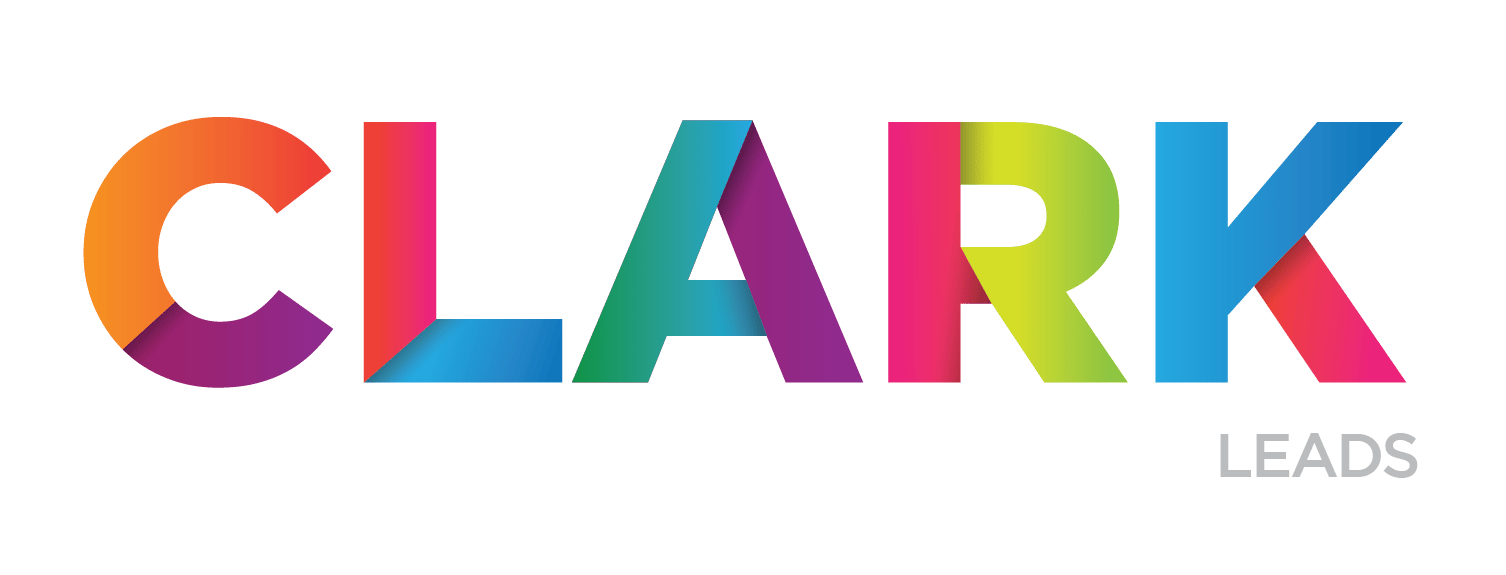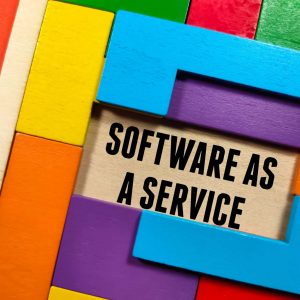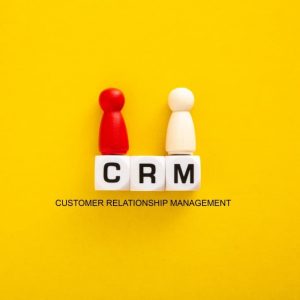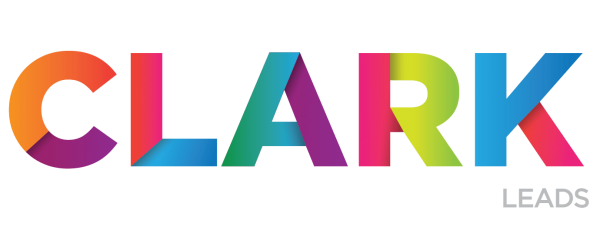Software for Business
You probably relate the term “software” to anything that lets a computer do its job. That includes the operating system, the web browser you may be using to view this page, and the many applications that run on your PC or phone.
But did you know that software can also play a vital role in business? In fact, without software, most businesses would grind to a halt. Sure, you need hardware like computers, servers, and storage devices. But it’s the software that makes them work together and gets the job done.
There are all sorts of software applications for businesses, from accounting and invoicing to project management and customer relationship management (CRM). Each one is designed to make some aspect of running a business easier, faster, and more efficient.
Let’s take a look at some of the most popular types of software for businesses and see what they can do.
Accounting and invoicing software streamlines the process of tracking money going in and out of your business. It can potentially save you a lot of time and help you avoid costly mistakes.
Project management software helps you plan, track, and collaborate on projects with your team. It’s a valuable addition to your company if your team is spread out across different locations.
CRM software helps you manage your customer relationships, including contact information, sales history, and support requests. It affords a better overview of your customers and can help improve your marketing and sales strategies.
Business Management Software
business management software
A business management software translates the daily tasks of a business into one centralized software. Depending on the company, these tasks might be payments, human resources, customer service, shipping, or any other essential function of the business.
In many scenarios, It includes an accounting software, which streamlines and automates many of the tasks related to money coming in and out of the business.
Operating systems, web browsers, and productivity applications like word processors and spreadsheets are all examples of software that we use in our personal lives. But there’s a whole world of software out there designed specifically for businesses.
Accounting and invoicing software is one example. This type of software streamlines the process of tracking money going in and out of your business. It helps prevent mistakes, which is something that businesses would want to avoid at all costs, especially when money is involved.
Inventory is another aspect of business that will greatly benefit from a business management software. The reason is that this type of software can automate the process of tracking inventory levels, as well as reordering items when they run low. This is a valuable tool for businesses because it can save a lot of time and money that would otherwise be spent on manual tasks.
The idea behind the use of an advanced software for managing business processes is to have one system that can handle all of the tasks that are necessary for the business to run smoothly. This is opposed to having multiple software programs that each handle a specific task.
An example of this would be a human resources management software. This type of software would include modules for tracking employee information, managing payroll, and creating and tracking employee benefits. Having one software that can handle all of these tasks would be much more efficient than having three or four different software programs that each handle a specific task.
Small Business Management Software
The reason why businesses and organizations decide to invest in business management software is that they need a more efficient way of running things as a growing or expanding business. When a business first starts out, it is usually small enough that the owner can handle all of the tasks associated with running the business.
However, as the business grows, there are more moving parts and more people involved. This is when things start to get complicated and disorganized. That’s where business management software comes in.
So, does it mean small businesses and start-ups don’t really need it?
The answer is no, businesses of all sizes can benefit from business management software. However, it is usually start-ups and small businesses that feel the need for it the most because they are growing the quickest and adding more people to their team.
Another thing to consider is that as a business grows, the owner might not have the time to handle all of the tasks associated with running the business. This is where business management software can be a lifesaver as it helps in team collaboration.
By delegating some of the tasks to the software, the owner can focus on more important things, like growing the business. It isn’t like the software will do everything for the business, but it can handle a lot of the grunt work, which frees up the owner to focus on more important tasks.
Business management with the help of a sophisticated workflow management software is necessary if an organization wants to take it to the next level. With brewing competition, it has become very difficult to maintain a firm grip over the market.
The best way to ensure proper utilization of resources, time, and money is by using business management software. When used correctly, this software can help businesses save a lot of money and time. It can also help businesses become more organized and streamlined.
Best Business Management Software
A business management software can be deployed in two ways: in-house and via a host (cloud). In-house software is installed on the business’s own servers while a cloud solution is provided by a third-party provider and accessed via the internet.
There are pros and cons to both deployment models and the best option for a business will depend on a handful of factors.
In-house business management software is usually more expensive than a cloud solution because the business will need to purchase the license (one-time fee), pay for servers (if they don’t already have them), and hire someone to manage the software (IT staff).
The benefit of an in-house solution is that the business has more control over the software and can customize it to fit their specific needs. They will also be able to keep all of their data on-site, which can be important for businesses that have sensitive data.
A cloud solution is usually less expensive than an in-house solution because the business doesn’t need to purchase any licenses or servers. They will simply pay a monthly fee to the third-party provider.
The benefits of a cloud solution, i.e., business management app, is that the business can get started quickly and they don’t need to worry about managing the software. The third-party provider will take care of all of that for them. Cloud solutions are also usually more scalable than in-house solutions.
What’s the Best Option for Your Business?
The best marketing automation software option for your business will depend on a number of factors, including budget, IT staff, data security, and customization.
If you have the budget for it, an in-house solution might be the best option. This is especially true if you have sensitive data that you need to keep on-site.
If you don’t have the budget for an in-house solution or you don’t have the IT staff to manage it, a cloud solution for workflow management might be the best option.
What’s important is that you choose a business management software that will fit the specific needs of your business operations. There are a lot of different options out there and choosing the right one can be overwhelming.
But, if you take the time to do your research and figure out what your business needs, you should be able to find a software that will help you take your business to the next level.
Best Small Business Management Software
What if you have a small business with a few people on staff? Does it mean your options for the best business management software are limited?
Not necessarily.
There are a number of software options that are specifically designed for small businesses, i.e., marketing automation software and business process. And, while they might not have all of the bells and whistles of the larger enterprise solutions, they can still be very effective at helping you manage your business.
Business Software List
Here are a few of the best small business management software options:
- Zoho Books
- QuickBooks Online
- FreshBooks
- Xero
- Wave Accounting
These are all cloud-based solutions, which means they’re easy to set up and you don’t need to worry about hosting or managing the software.
They’re also all very affordable, which is important for small businesses that have limited budgets.
How to Choose the Best Business Management Software
Now that you know a little bit about some of the best business management software options, how do you choose the right one for your business?
Here are a few things to consider when looking for software tools:
Price – This is always an important consideration, especially for small businesses. You need to find a software that fits within your budget.
Features – Take a look at the features of each software and make sure it has everything you need. For example, if you have a sales team, you’ll want to make sure the software has CRM capabilities for your business operations.
Ease of Use – You don’t want to spend a lot of time training your employees on how to use the software. Look for a software that’s easy to use and has a good user interface.
Support – When something goes wrong with your software, you want to be able to get help quickly. Make sure the company offers good customer support.
The best business management software is the one that answers your needs and delivers results. By taking the time to do your research and compare your options, you should be able to find the perfect software
Business Management System
Business management systems are made up of processes, functions, procedures, and numerous policies to develop an organization’s structure. The management system is integral to the success of any business and must be able to adapt as the company grows.
A business management system can be divided into five main parts:
Planning – This is the process of setting goals and objectives and figuring out how to achieve them. The planning stage proves critical to the success of any business.
Organizing – This is the process of putting together the resources you need to achieve your goals. This includes things like hiring staff, buying supplies, and renting office space.
Leading – This is the process of inspiring and motivating your employees to achieve the company’s goals. It typically includes setting a good example, giving clear instructions, and offering feedback.
Controlling – This is the process of making sure everything is running smoothly and efficiently. It includes things like tracking progress, setting KPIs, and taking corrective action when necessary.
Improving – This is the process of continuously making changes and improvements to the business management system. It incorporates software tools and concepts that are constantly evolving, such as lean management and Six Sigma.
Monitoring – This is the process of observing the business management system and making sure it’s working correctly. This includes things like auditing, analyzing data, and writing reports.
Business Computer Programs
We all have come to rely on the Microsoft Office suite for a multitude of tasks in both our personal and professional lives. Back in the day, MS Office was a revolutionary tool and everyone was in awe of it.
However, for businesses, there are countless other computer programs designed to make running a business easier. We’ve all been treated with computer programs that perform highly specific functions. But from the business perspective, there are several broad categories of programs that most businesses will find useful.
Accounting Programs – This business management software solution will help businesses keep track of their finances and manage their money. They can track income and expenses, prepare tax returns, and generate financial statements.
Inventory Programs – Inventory programs help businesses keep track of their inventory levels and manage their stock. They can track inventory levels, reorder stock, and generate reports.
Sales Programs – The purpose of these software tools is to help businesses keep track of their sales and manage their customers. They can track customer orders, email marketing, process payments, and generate invoices.
Marketing Programs – Marketing programs help businesses promote their products and services. They can create marketing campaigns, track customer leads, and generate reports.
Human Resources Programs – They’re meant to help businesses manage their employees. They can track employee information, process payroll, and generate reports.
Customer Relationship Management Programs – CRM programs help businesses manage their customer relationships. They can track customer contact information, manage customer accounts, and generate reports.
Business Management Solution
Managing a business with its day-to-day operations, resources, sales, and marketing can be a handful for any business owner. This is where a business management solution comes into the picture. Business management solutions are a great way to automate and streamline your business processes.
A business management solution can do a lot of things such as:
- financial management
- track your inventory
- process your sales
- email marketing
- promote your products and services and monitor sales pipeline
- supply chain management
- document management
Even small business owners will benefit from the investment in a comprehensive business management solution. It’s a tool that will save you time and money in the long run. Automating an organization’s bevvy of tasks, business management solutions are designed to make your life as a business owner easier.
Company Organization Software
Are you looking for a way to better organize your company? There are a number of software programs that can help you with that. Company organization software is designed to help businesses and professional services firms manage their employees, customers, and finances.
Organizational software can do a lot of things, i.e., manage your finances, email marketing, track your inventory, process your sales, manage your customers, promote your products and services, monitor your employees.
When it comes to employee management, the software can help you keep track of employee information, process payroll, and generate reports. For customer management, the software can help you track customer contact information, manage customer accounts, and generate reports for an entire business.
As for finance management, the software can help you keep track of income and expenses, prepare tax returns, and generate financial statements.
Investing in company organization software is a wise decision for any business owner even if it means spending money for the initial outlay and setup. But in the long run, you will save time and money, which is what business is all about.
All-in-One Business Management Software
If you’re leading an entire business or organization with multiple departments and processes, then you know how important it is to have a complete business management software in place.
Business management software can help you automate and streamline everything, from sales and marketing to human resources and customer relationship management.
In other words, business management software is a tool that can help you with every aspect of running your business. It’s an all-in-one solution that will save you time and money in the long run.
It isn’t like you spend money on a tool that will only help you in a certain period or limited time. Once you invest in an all-in-one business management software, it means that you’re set for the future.
The benefits of using an all-in-one business management software are many, but here are some of the most important ones:
- You’ll save time because you won’t have to switch between different software programs to get your work done.
- You’ll save money because you only have to pay for one software program instead of multiple programs.
- You’ll have an easier time managing your business because everything will be in one place with a comprehensive business management software.
- You’ll be able to make better decisions because you’ll have all the information you need right at your fingertips, especially for client management solution.
If you’re looking for a top business management solution, then all-in-one business management software is the way to go. It’s a tool that will save you time and money in the long run, and it’s a wise investment for task management for any business owner.
Small Business Systems Software
Small businesses have a lot of moving parts, and it can be difficult to keep track of everything. That’s where small business systems software could prove valuable. This type of software is designed to help small businesses automate and streamline their operations, including manual task management and client management.
Not many small and medium sized business owners realize that such business management software even exists. They think that only big businesses can afford to invest in such solutions. But the truth is, small business systems software is very affordable and it can save you a lot of time and money in the long run.
There are many different types of small business systems software on the market, but some of the most popular ones include customer relationship management software, client management, enterprise resource planning (ERP) software, unified business management suite, and project management software.
CRM software is designed to help small businesses manage their customer relationships. It can help you track customer contact information, manage customer accounts, and generate reports.
ERP software is designed to help small businesses manage their finances. It can help you keep track of income and expenses, prepare tax returns, and generate financial statements.
Project management software is designed to help small businesses manage their projects. It can help you plan and execute projects, track project milestones, and collaborate with team members.
Investing in small business systems software is a wise decision for any small business owner as it helps to manage projects. It’s a tool that can save you time and money in the long run, and it’s an investment that will pay for itself many times over.
Project Management
The idea of project management is as old as time itself. The need to manage projects efficiently and effectively has been around since the dawn of civilization.
The term “project management” was first coined in the early 1900s, but it wasn’t until the 1950s that the modern project management methodology began to take shape.
Today, project management is an essential part of any business. It’s a tool that can help businesses of all sizes to plan, execute, and track their projects.
There are many different project management software programs on the market, but some of the most popular ones include Microsoft Project, Basecamp, and Trello.
Microsoft Project is a comprehensive project management software program that has been around for decades. It’s a tool that can help businesses of all sizes to plan, execute, and track their projects.
Basecamp is a popular project management software program that has been around since 2004. It’s a web-based tool that helps businesses of all sizes to collaborate on projects.
Trello is a popular project management software program that has been around since 2011. It’s a web-based tool that helps businesses of all sizes to organize and track their projects.
Investing in project management software makes sense in many fronts, including small business owners. It’s a tool that can help businesses of all sizes to plan, execute, and track their projects.
Business Management Tools
The tools for business management purposes come in all shapes and sizes. Some of them are designed for small businesses, while others are designed for larger businesses. The most important thing to keep in mind when you’re looking for business management tools is that they should be able to save you time and money.
A business management tool can be in different forms with key features, i.e., methodology, program, application, or system.
The term “business management tools” is very broad, but some of the most popular ones include customer relationship management (CRM) software, enterprise resource planning (ERP) software, project management software, and business intelligence (BI) software.
CRM software enables business owners to manage their customer relationships through monitoring and tracking of essential data.
ERP software is designed to help businesses manage their finances by tracking information such as income and expenses, tax returns, and financial statements.
Project management software is designed to help businesses manage their projects. It can help you plan and execute projects, track project milestones, and collaborate with team members.
Business management tool or software is designed to help businesses make better decisions by providing them with data-driven insights. There are many different business management tools on the market for business intelligence reporting and other processes, but some of the most popular ones with key features include Salesforce, Oracle, SAP, and Microsoft Dynamics.
Frequently Asked Questions
It will depend on the specific needs of your business. However, some common small business management software used by businesses include office suites such as Microsoft Office or Google Docs, accounting software such as Quickbooks or Xero, project management software such as Trello or Asana, and customer relationship management (CRM) software such as Salesforce or Zoho CRM.
Many small businesses use office suites with key features such as Microsoft Office or Google Docs, as well as accounting software such as Quickbooks or Xero. Additionally, project management software such as Trello or Asana can be helpful for small businesses in staying organized and on top of tasks.
Business software is any software that helps businesses manage their operations, including office suites, accounting software, project management software, and CRM software. Some examples of business software include Microsoft Office, Quickbooks, Trello, and Salesforce.
The most commonly used software by businesses include office suites such as Microsoft Office or Google Docs, accounting software such as Quickbooks or Xero, project management software such as Trello or Asana, and customer relationship management (CRM) software such as Salesforce or Zoho CRM.
Some examples of small business management software include office suites such as Microsoft Office or Google Docs, accounting software such as Quickbooks or Xero, project management software such as Trello or Asana, and customer relationship management (CRM) software such as Salesforce or Zoho CRM.
A business management system is a software with key features that helps businesses manage their operations, including office suites, accounting software, project management software, and CRM software.
The four types of business management are office management, accounting management, project management, and customer relationship management (CRM). Each type of business management software helps businesses with different aspects of their operations.
The best CRM for a small business is the one that fits the specific needs of your business. Some common CRMs used by small businesses include Salesforce, Zoho CRM, and HubSpot CRM.
Some factors you ought to consider when choosing small business software include ease of use, affordability, and whether the software integrates with other software you are already using.
Businesses use different software solutions to meet their needs. Some common tools used by a small business management software include office suites such as Microsoft Office or Google Docs, accounting software such as Quickbooks or Xero, project management software such as Trello or Asana, and customer relationship management (CRM) software such as Salesforce or Zoho CRM.
The answer to this depends on what your business wants to achieve. You’d likely wish to start with some of the most common software used by businesses, which include office suites such as Microsoft Office or Google Docs, accounting software such as Quickbooks or Xero, project management software such as Trello or Asana, and customer relationship management (CRM) software such as Salesforce or Zoho CRM.
Big companies rely on a handful of software solutions, i.e., the software that is most critical for their operations. These solutions might include enterprise resource planning (ERP) software, customer relationship management (CRM) software, and office suites. Some examples of software used by big companies are Microsoft Dynamics, Oracle NetSuite, and SAP Business One.
The best software meant for inventory management is one with key features that would cater to the requirements of your business. Some common software used for inventory management include QuickBooks, InventoryLab, and Fishbowl Inventory.
We’ve got a lot, but the most common software used by businesses are office-related suites like Microsoft Office or Google Docs and project management programs, i.e, Trello or Asana. It can also include accounting software such as QuickBooks or Xero.
If we are to determine the most commonly used software solutions by companies, it would probably include office suites (e.g., Microsoft Office, Google Docs), project management software (e.g., Trello, Asana), accounting software (e.g., QuickBooks, Xero), and customer relationship management software (CRM; e.g., Salesforce, Zoho CRM).
The software used in big companies is usually enterprise resource planning (ERP) software, customer relationship management (CRM) software, and office suites. Some examples of software used by big companies are Microsoft Dynamics, Oracle NetSuite, and SAP Business One.
A small business management system is comprised of three primary components, namely, the software, the hardware, and the services. The commonly used ones by businesses include office, project management, customer relationship management, and accounting software. The hardware usually consists of the server, workstations, and networking equipment. The services might include data backup, security, and support.
A business management system should ideally include office software, project management software, accounting software, and customer relationship management software. The hardware should consist of the server, workstations, and networking equipment. The services might include data backup, security, and support.
Developing the ideal business management system means weighing in some key considerations, including understanding the needs of your business and then finding or developing software that can help support those needs. Other factors to consider include the cost of the software, ease of use, and whether or not it integrates with other systems you may be using.
Some businesses may need accounting software, while others may need project management software. You must first assess your needs and then look for a program that meets those needs.
The major types of computer software essential for business use are office suites, accounting software, customer relationship management (CRM) software, and project management software. These are just a few examples; the needs of your business will dictate which types of software you require.
Different niches and industries may have varying needs for software. The program to choose will be based on the particular functions, manual tasks, and areas of improvement you’re looking for. Some businesses may find that they need an all-in-one software solution, while others may prefer to use multiple programs to cover different needs.
Software used by key companies in different industries include Microsoft Office for office suites, QuickBooks for accounting, Salesforce for CRM, and Trello for project management. Again, the needs of your business will guide what software you ultimately choose to use.
The key to this question is the glaring problem that the company must address. Look for software with features that will help to alleviate the company’s main issue. Other important factors to consider include cost, ease of use, and integration capabilities.
The most popular software used by many organizations include that of office suites, such as Microsoft Office, and project management software, such as Trello. These programs are popular because they offer a broad range of features that can be customized to fit the needs of most businesses.
Business administration software is a type of software that helps businesses to streamline their operations and manage their data. This may incorporate anything from accounting software to project management software. The needs of your business will dictate which type of business administration software you require. Be guided that these are just a few examples of the software that may be used by businesses. The needs of your business eventually dictates which software you use. When in doubt, consult with a software expert to get tailored recommendations for your business.
Business applications require software that can streamline operations and manage data. This includes office suites, accounting software, customer relationship management (CRM) software, and project management software. When choosing software for business applications, the best course of action is to consult with a software expert to get tailored recommendations for your business.
Zoho One is a suite of business applications that includes CRM, project management, office suite, and more. While it does not specifically market itself as an ERP system, it does have the capabilities to function as one. For this reason, Zoho One could be a good option for businesses that are looking for an all-in-one software solution.
Large businesses have different (unique) needs. Hence, they often use enterprise resource planning (ERP) systems. ERP systems are comprehensive software solutions that help businesses to manage their data and operations. Other popular software used by large businesses include office suites, customer relationship management (CRM) software, and project management software.
There is a variety of bookkeeping software available on the market, and the best option for your business depends on certain parameters. Some bookkeeping software is designed for businesses of all sizes, while others are geared specifically towards small businesses. When choosing bookkeeping software, be sure that you understand what your team needs, and if possible, try out a handful of options before deciding.
Client Testimonials



















